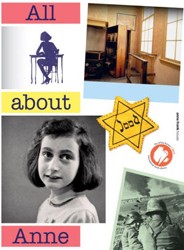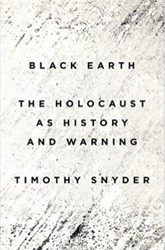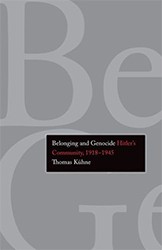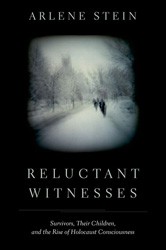There were six million stories that will never be told. There are more millions of stories that have been told, are being told, and will yet be told. The Holocaust was a unique historical experience. As such, it was experienced differently by each survivor. We are familiar with many of these stories. The first person memoir is a specific genre of Holocaust literature. Some storytellers are more eloquent than others, and some just need to have their story told. For some the Holocaust inspires ineffability. Others cannot stop their narrations. Still others require the passage of many decades before they can commit their stories to posterity. In any case, in a few years this genre will disappear.
Little Miracles and Pilgrimage From Darkness .are two very different books. What they share is a glimpse into two dimensions of the Shoah that have not received much treatment. The former describes the Holocaust as it was experienced in Russia and Siberia. The latter traces the spiritual search of a member of Hitler Youth and the Luftwaffe who becomes disillusioned when faced with the monstrous truth of Nazism.
Abraham Bichler, the author of Little Miracles, was born in Krylov, Poland, a typical shtetl near the Ukraine. When Germany invaded Poland on September 1, 1939, the Bichler family crossed the Bug River into the Ukraine. After a while they were transported by the Russian army to Siberia. Ultimately they were sent to a work camp where those who could worked 18 hours a day making bricks. Daily life, relations with the Russian soldiers and authorities are described in minute detail. We are familiar with accounts of German concentration camps. Here in Siberia, the conditions were harsh but for the most part the Russians weren’t as sadistic as their Nazi counterparts. Childhood in a Russian work camp makes one grow up very quickly, and Bichler describes many escapades in this maturation process. Eventually the family was taken to Turkestan in central Asia where it was warmer. Bichler describes daily life and survival living alongside many different ethnic groups during this period. Whom to trust, what to say, where to find food, what to barter, etc., were often life or death decisions. After the German surrender on May 7, 1945, the Bichlers escaped from Russia back to Poland. With much luck they got as far as Lublin, where the truth of the Nazi atrocities made going home an impossible dream. There was no home left. Their adventures, the risks they took, religious life, education, family issues, etc. during their many journeys are all chronicled. From Lublin they went to Lodz where Abraham lived and studied in a Zionist kibbutz much like an orphanage, even though he wasn’t an orphan. From there young Abraham traveled some more, eventually living in a DP camp before winding up in America as a young teenager.
This story of one family’s triumphs and tragedies and all the “little miracles” that just seemed to happen to keep them alive offers the reader a perspective on the Holocaust as experienced on Russian soil. It is a very different narrative from those describing the Jewish experience in other parts of Eastern Europe, and one worth reading.
Oskar Eder, the subject of Pilgrimage from Darkness, grew up in a Christian home in the small German town of Lauf near Nuremberg. He was always an inquisitive youth, which did not endear him to his religion teachers. Initially he did not gravitate toward the rougher boys but eventually this changed, and, swept up with the need for social acceptance, he joined the Hitler youth. His parents were not Nazi supporters, and Oskar himself did not fully comprehend what Hitler represented. In the early years he just felt nationalistic pride in defending Germany. Ultimately becoming a Luftwaffe pilot, Oskar didn’t do any real flying since by the time he graduated there was a fuel shortage and the war was winding down for Germany.
Starting with some fellow soldiers and later with Resistance members, Oskar came to realize what his sheltered small-town life and Nazi propaganda had hidden from him. The truth shattered him. After the war he became a banker and then a lawyer, but he was fully occupied by his search for answers. He tried to understand what had happened to his country and to his heritage. He struggled to understand German anti-Semitism. Raising Germany from the destitution of World War I required the country to focus on its enemies to unite and motivate the populace. Blaming many enemies, however, would have left the Nazis without focus and its people discouraged. Therefore the list was distilled to one. This logic did not repair his disintegrating reality. The bulk of the book is a travelogue of Oskar’s search for spirituality and for answers. He studied Ramakrishna, Vivekananda, Gandhi, Sufism, the Bible, the Koran, Hinduism, Buddhism, and lived with Sikhs, monks, and many teachers of different sects. He traveled to the Middle East and Asia, and climbed mountains to seek the advice of hermits.
Ultimately he made his way to Israel and joined a circle of the elite intelligentsia of Jerusalem, including Professors Hugo Bergman, Martin Buber, and David Flusser. He read, he traveled, he meditated, he studied, he discussed, he contemplated. Taking the name Asher, he lived on various kibbutzim, walked the land of Israel, learned Hebrew, and tried his hand at farming a plot of land. Among the amazing aspects related in this book are the large numbers of people from all faith groups who were willing to take him in and help him in his search. Eventually he converted to Orthodox Judaism, married a Holocaust survivor, and became a tour guide. This biography reveals yet another aspect of the Holocaust. There are probably others who were similarly disenchanted with Nazism, but either they didn’t record their stories, or they weren’t sufficiently bothered to work out their inner conflict.
Asher Eder is a special person. He may not have found all the answers. He may not be fully at peace. But he has found the approach that satisfies him most. His relationship with his parents is also explored, as is the cultural milieu in which he was raised. His struggle to comprehend has been rewarded. The reader will likewise be rewarded by reading this book.
Related Content:
- Little Miracles By Abraham Bichler
- Running from Giants by Diane Ackerman
- Holocaust Reading List





